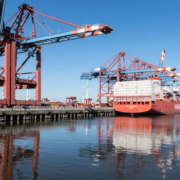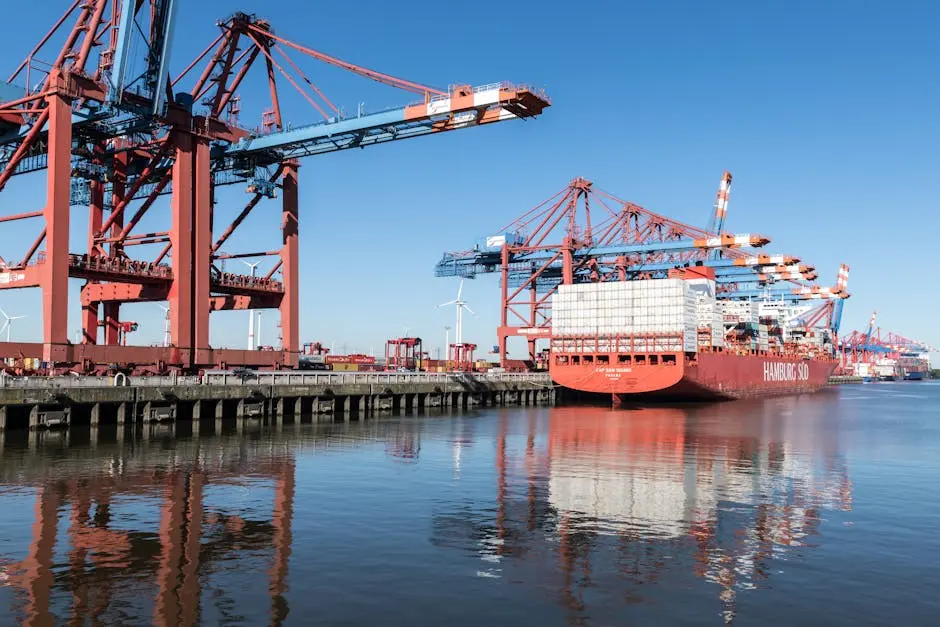7 Common Mistakes to Avoid When Shipping Wine in Bulk
Shipping wine in bulk can be a daunting task for many, whether you’re a winery owner or just someone looking to send a case to a friend. Mistakes can lead to spoiled wines, broken bottles, and lost profits. In this article, we’ll explore the common pitfalls to avoid to make your bulk wine shipping smooth and successful.
1. Neglecting Temperature Control
Temperature control is crucial when it comes to shipping wine in bulk. Wines are sensitive to heat and cold, and fluctuations can ruin bottles. For instance, if your wine is exposed to high temperatures during transit, it can lead to spoilage, causing irreversible damage. In essence, it’s essential to monitor the temperatures throughout the shipping process. Implementing temperature-controlled shipping options can protect your investment and ensure your wine remains in pristine condition.
Moreover, you need to consider climatic conditions at both the origin and destination of your shipment. If you’re shipping during peak summer months, heat can be an overwhelming factor, while winter cold can also freeze and expand the liquid inside the bottle, leading to cracks. Investing in insulated containers or temperature-controlled carriers might seem like an extra expense, but it pales in comparison to the losses incurred from damaged goods.
2. Using Inadequate Packaging Materials
When it comes to shipping wine, the packaging is just as important as the wine itself. Using inadequate packaging materials can result in damaged bottles or, worse, sending out a shipment that arrives in pieces. A common mistake is opting for generic boxes instead of those specifically designed for wine transport. These specialized boxes come with protective inserts to hold each bottle securely and prevent movement during transit.
Additionally, always remember the importance of cushioning materials. Bubble wrap, packing peanuts, or molded pulp inserts can provide that extra layer of protection. Especially for larger shipments, reinforcement is key. The last thing you want is to have a wonderful case of wine arrive at its destination only to have the bottles clinking together, resulting in shattered glass and spilled wine. Make an effort to choose reliable and appropriate packaging materials to ensure the safe arrival of your products.
Lastly, don’t forget to label your packages adequately. Clear labeling not only indicates to handlers that the contents are fragile, but it also helps in the identification and tracking of your shipment. When using proper packaging combined with clear labels and signage, you’re opting for a solid first step toward successful bulk wine shipping.
3. Overlooking Shipping Regulations
Shipping wine in bulk doesn’t just involve logistics; it includes navigating a complex maze of laws and regulations. Overlooking shipping regulations can lead to costly fines or delays that can ruin your shipment altogether. Each state or country may have different rules regarding the transport of alcohol, and what’s legal in one place may not be in another. Failing to understand these laws can jeopardize your shipment or, even worse, your business.
To avoid complications, invest time in research before shipping. Knowing the laws related to shipping alcohol in your destination state as well as those federal regulations that apply will spare you from a world of trouble. Also, consider utilizing carriers that specialize in the transportation of wine; they typically have proven track records and a wealth of knowledge regarding the legalities involved in bulk wine shipments.
Furthermore, consider consulting with a legal advisor on matters concerning distribution regulations. A thorough understanding of your specific requirements can save you significant headaches down the road. Ultimately, being proactive in recognizing and abiding by shipping regulations will enhance your bulk wine shipping experience.
4. Failing to Insure Your Shipment
Insurance might seem like an optional cost when shipping wine in bulk, but neglecting it can lead to substantial losses. Imagine receiving the news that your valuable shipment was lost or damaged in transit—all without any protection. Insuring your shipment ensures that, should the unexpected happen, you’re compensated for your losses, providing peace of mind throughout the shipping process.
Additionally, when selecting an insurance policy, make sure to get one that covers the full value of your wine. Many carriers offer limited liability coverage, which may not account for the true worth of your shipment. Take the time to investigate appropriate insurance options that cater specifically to alcohol shipments, as this will safeguard your investment and ensure that you’re covered in case of mishaps.
Lastly, keep comprehensive records of your shipment. Document the details of the wine, including its value, and retain invoices or receipts. This will make the claims process easier and help you receive compensation for any accidental losses that occur. Insuring your bulk wine shipment isn’t just a recommendation; it’s a smart business decision.
5. Ignoring the Right Carrier
Choosing the right carrier for your bulk wine shipping is paramount. Each carrier has its own set of strengths and weaknesses, and it’s essential to match your needs with their capabilities. Some companies specialize in shipping perishable items, while others may not have the right equipment. For example, if your shipment needs temperature control, ensure the carrier can meet those specifications.
Moreover, consider the carrier’s experience with wine shipping. They should be knowledgeable about handling wine bottles, understanding how to load and unload them properly to minimize the risk of damage. Customer reviews and testimonials can offer valuable insights; look for carriers that are well-reviewed for their service, reliability, and efficiency.
Don’t forget to inquire about their policies on tracking and communication. A carrier that offers real-time tracking will allow you to monitor your shipment every step of the way, giving you reassurance and the ability to respond quickly to any issues that arise. Choosing a carrier isn’t just about price; it’s also about finding one that aligns with your specific shipping needs for a successful delivery.
6. Not Accounting for Delays
One common mistake in bulk wine shipping is underestimating potential delays. Shipping is rarely a straightforward process, and unforeseen issues can arise, from weather events to customs checks. Failing to factor in these potential delays can lead to unpreparedness or an unexpected upset in your delivery schedules that can disrupt customer expectations.
To mitigate these risks, build buffer time into your shipping schedules. Allow for extra days beyond the expected delivery date to accommodate possible setbacks. This way, you won’t be caught off guard if there are hold-ups. Communicating this buffer time with your clients also manages their expectations and demonstrates your professionalism in handling logistics.
Additionally, consider planning for seasonal shipping challenges. Certain times of the year, like holidays or peak seasons, may incur heavier shipping volumes and lead to longer delays. Staying informed about industry trends and peak shipping periods will help you create better timelines for your shipments and enhance your clients’ overall experience.
7. Underestimating the Importance of Labeling
Labeling is an often-overlooked aspect of bulk wine shipping, yet it plays a pivotal role in the entire process. Proper labeling is essential not only for ensuring safe transit but also for compliance with legal requirements. In this regard, every box should clearly state what’s inside, as well as any potential hazards associated with the contents. This is particularly crucial when shipping internationally.
Additionally, labels can carry vital information such as handling instructions, customer details, and tracking information. Neglecting to include this can result in lost shipments or mishandled packages. Take time to ensure that your labels are easy to read and prominently displayed in order to facilitate the shipping process. A well-labeled package can help ensure smoother handling from warehouse employees to delivery personnel.
Ultimately, a commitment to high-quality labeling can also enhance brand recognition. By consistently using professional labels that align with your company’s branding, you contribute to the overall presentation of your wine and build trust with your customers. In the world of bulk wine shipping, labeling isn’t just about information—it’s a branding opportunity that can distinguish your product in the market.



